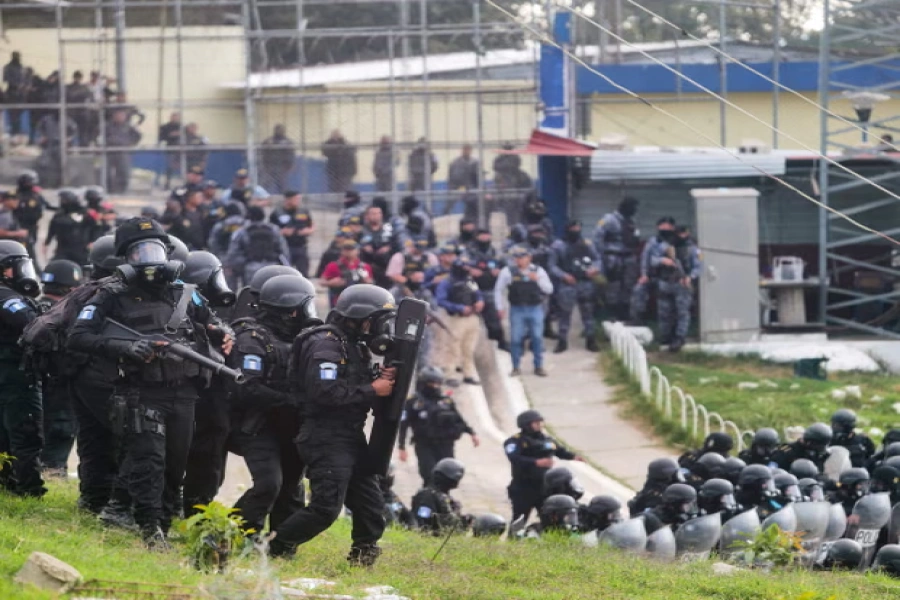In Nepal, social media has not been used for liberal democratic debates. It has become a source to foster large-scale political polarization
Human beings generally have such complex that they try to glorify themselves and their ideologies. This cognitive leaning does not occur in a vacuum. It is stimulated by social forces around us. Going with self-verification theory, usually feedbacks from others endorse and authenticate such behavior. Our tendency to surround ourselves with people holding similar perspectives about the world is served by today’s digital social forces. When it comes to political domain, such context can intensify prejudicial mindsets and create ‘echo chambers’ that ultimately reduce the quality and diversity of opinion among large mass of people.
Echo chamber—a feedback loop—has occurred as inevitable phenomena in political domain of democratic countries and Nepal is no exception. There exists a kind of demographic anxiety as people tend to cultivate more polarized views on political matters. Since they are surrounded by people and source that support their views they remain far from opposite argument all because of social media like Facebook and Twitter. Given the fact that social media has become a means to filter-out opposing views from our personal online space, it is producing an “echo chamber.” In Nepal, such scenario exists not because of people’s refusal to consider opposing perspectives, but because it emerges out of negative political environment and intense political frustration among people.
Sharing the bias
PM Oli expresses concern over frequent tremors

To understand how echo chamber functions in Nepali political discourse, just analyze the degree of political opinions in social networking sites and how they are structured. You will find two layers. One is biased opinion shared by intellectuals and another is the chamber (social media) which allows opinion to echo back to average audiences, ultimately planting biased view in their minds. And when they too share same biased opinions in social platform, it will reach and be consumed by other citizens with similar viewpoints. According to the study done by Andrew Guess from Princeton University “People are using social media to access only specific kind of information and they tend to select information that conforms their preference.” For example some of my friends who are radical Congress only follow and like the people or pages in Facebook and Twitter that support Nepali Congress. As a result they never get chance to hear opposite arguments. This eco-chamber intensifies if media users receive politically inclined information from their network which amplifies and reinforces their predisposed ideology.
Political polarization in Nepal has already reached the level of large demographic divisions in the country. Nepalis are divided on contentious issues such as secularism, transitional justice and India or China debate. Such divisions are often triggered by partisan thinking. Partisan thinking these days influences preferences about many social policy issues. Such partisan comportment not only results in compromise of making and execution of social policies but also affects effective function of democracy.
Before the rise of social media in Nepal, only some groups of intellectuals used to get involved in political discussion, limiting the expression of biased views among upper layer stakeholders. But in the post-social media society, almost everyone is producing as well as consuming prejudiced views.
Today Nepali citizens enjoy discussion in their own chamber, a sub-network within large network where thousands of people indulge in their own preferred opinions. Some cyber experts claim that programs designed by social sites themselves favor echo-chamber but the structure of biased political vacuum in Nepal is created by involvement of people rather than digital algorithms.
Seeing and believing
Few days back, I, along with ten other Facebook friends, was tagged in news feed related to Dr Govinda KC’s movement. Some friends tagged along with me immediately believed in the news claim without any research and shared the posts. They did this because it matched their per-conceived notion about Dr KC’s Satyagraha. To ensure that we are consuming truth and not political propaganda, it’s important to independently verify the information received through social media before sharing it with others. Unfortunately, very few people bother about it.
A research report published in Science Journal has found that people are likely to engage and immediately share information without verification which supports their ideological beliefs. This applies on us too. That’s why we are experiencing maximum polarization in Nepali society on every issue.
Today, information seekers get countless opinions through social media outlets. To deal with such vast information surplus, consumers have to make rational choice about what to consume and what to avoid because such information finally determines how we behave. Social media is widely taken as interlinked platform to share opinion and information with people in every corner of the world. In such platform, anyone interested in political debates is expected to access wide range of perspectives and become more tolerant to opposing views.
But social media in Nepal is not being utilized for liberal democratic debates. Instead it has become a source to foster large-scale political polarization. We have failed to figure out how to use social media for erasing existing political prejudice, for disseminating more liberal opinions and representing our collective democratic sprit as Nepali.
The author is a Senior Researcher at Global Initiative for Vivid Empowerment, a Kathmandu-based NGO








































